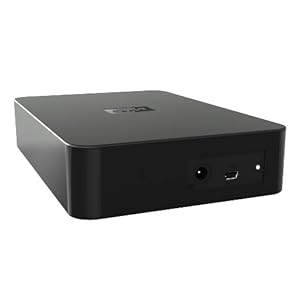5 Tips For Buying An External Hard Drive
So you've finally decided to buy an external hard drive as a backup option for your computer. This is a great option for you because you're development backing up your data faster and easier than you could ever have imagined. You're also development your data far more portable in larger quantities than before.
You'll no longer be small to storing a few hundred megabytes or even any gigabytes. Nope. Now you can look send to portable and trustworthy storage capacities ranging into terabytes. That frustrating desktop computer or network file server backup job just got a whole lot easier.
If you've never bought an external hard disk before then there's a few pointers here that may help to have on your shopping list before you go and make that final purchase.
1. Buy A Brand
Do yourself a huge favor and buy a brand name that you for real recognize. Sure these may cost a small more than brand x but with computer accessories like this you for real do get what you pay for. If a Western Digital 100Gb external drive costs 0 and an additional one brand x 100Gb drive costs why do you think that is? Because the business likes you? Because they like development smaller profits? No it's because it's a economy drive made with inferior parts that's going to break a lot sooner than you might expect.
The other aspect of sticking with a brand is your warranty. For example Maxtor, Western Digital and Iomega are all trustworthy fellowships and well known for their external hard disks. If something goes wrong with your drive you can have it fixed. With brand x you'll probably not even be able to find an email address that you can feel the parent business on. Is salvage a few dollars worth that risk?
2. Google It
Whatever brand or model you decree on make sure you do some investigate before purchasing. Always, all the time Google the exact brand and model of the drive you're inspecting buying. Look for reviews and especially any feedback on how trustworthy a drive is. You'll be very surprised to find that some fellowships have particularly bad reputations in terms of tool reliability and what's known as the "click of death" in the external hard drive industry.
Spend time in Google checking out your prospective purchase. You'll be glad that you did.
3. Connectivity
When it comes to external hard drives you'll need to select considered when selecting your association types. Your external hard drive will retain either Usb or Firewire. Firewire is the fastest option available at the occasion but your computer may not retain this. The vast majority of modern computers will, however, highLight a Usb port.
The next interrogate now is what type of Usb port do you have - Usb 1.0 or 2.0? If your computer only has a Usb 1.0 port then your external hard drive is going to exchange data Very slowly. Usb 2.0 is the minimum you should reconsider as association options for both your computer and your external hard drive. If you don't have a Usb 2.0 port (also called HiSpeed Usb) on your computer you may need to get a Usb 2.0 card fitted.
4. Speed
Now of policy we need to talk about speed. The faster your hard drive operates the faster data will get transferred to your computer and vice versa. Without boggling you with comptuer jargon there's a join of technical things you need to comprise on your shopping list.
Seek time - this needs to be 10ms (milliseconds) or less
Buffer size - more is better. Get a drive with at least a 4Mb buffer.
Rpm - higher is better. 5400rpm as a minimum. 7200rpm being preferred.
Stick to the above basic pointers and you'll do just fine.
5. Size
This is the uncomplicated part of the whole "buying an external hard drive" equation. Buy as much as you can afford. If you can afford 100Gb then get it. However if you can afford 200Gb then get it. Then again if you scraped together a few dollars more you could afford 300Gb then do it.
This isn't a sales pitch. Far from it. There is plainly no such thing as having too much data storage space. The 160Gb drive that I have here was filled up in a small under a month. Currently a terabye option sounds good for my hereafter needs.
Always add 50% to your data storage requirements. Honestly. You'll thanks yourself within the first 90 days of buying your external drive.
Hopefully now you'll be better ready for purchasing your new external hard drive. It's one of the best purchases you'll ever make.

No comments:
Post a Comment